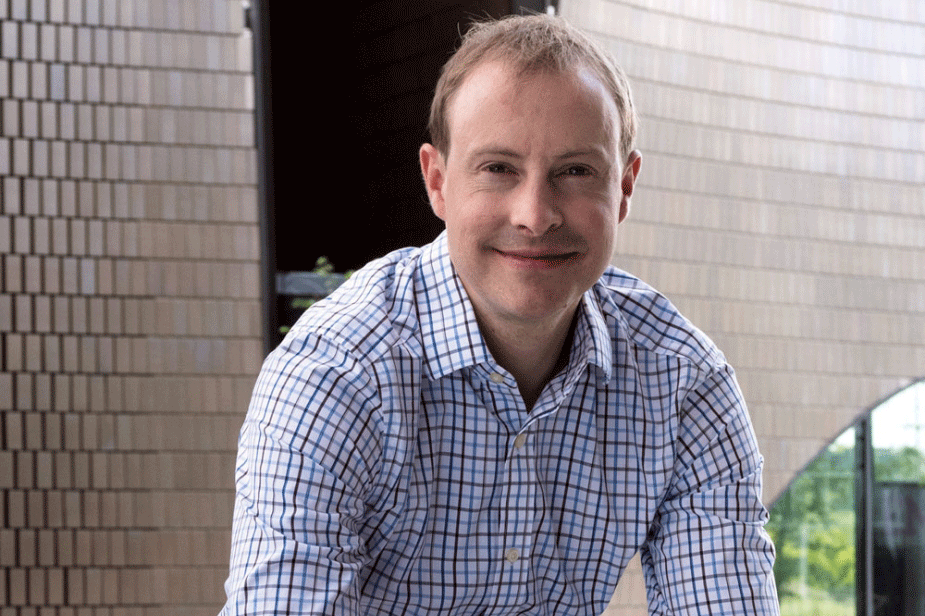Age: 38
Job title: Associate Professor, Department of Physiology and Pharmacology, Cumming School of Medicine, University of Calgary
Why he’s a 2016 Top 40:
Gordon directs a team of researchers that is discovering new information about brain-support cells, and has developed a unique, experiential microscopy education program that literally teaches students the tools of the discipline.
Grant Gordon wanted to be an artist, but, when he started university, he decided to study science instead. He didn’t like it. Fortunately, he persisted.
“It wasn’t until graduate school that I really started to understand what science was all about, and that I love it,” Gordon says.
Later, as a Ph.D. candidate, he made discoveries about the function of a brain-support cell called the astrocyte that would shape his career as a research scientist. Today, Gordon and his multidisciplinary research team are investigating how the brain controls its blood supply, which could help scientists understand more about neurological conditions like dementia, migraine and stroke.
As a principal investigator, Gordon has brought the University of Calgary $2.4 million in salary, infrastructure and operational support. He’s the author of 20 peer-reviewed publications and has received a dozen honours and awards, including provincial and national New Investigator Awards from the Heart and Stroke Foundation.
But he’s never chased accolades – he just wants to be in his lab doing the work. “I’ve got a medium-sized lab now, we’ve got funding, it’s exciting,” Gordon says. “It’s so awesome doing experiments and trying to discover new things about the brain.”
Gordon, who describes himself as a “curiosity-driven” scientist, became interested in microscopes and optical investigation during his education. When he began running his own lab, he put his knowledge to use. “My lab started developing custom microscopes tailored to our specific needs,” he says.
Gordon and one of his post-doc fellows created a two-photon microscope (a type of microscope that is especially good at imaging live cells) and made the plans available online – it has already been downloaded more than 1,200 times and built by at least five labs.
Gordon went on to develop an experiential microscopy education program that is teaching students how to adapt microscopes in ways that will give them more control over their observations and experiments.
With a busy extracurricular life that includes painting, playing drums and rock-climbing, balancing priorities has become challenging. “The last couple of years, I’ve said yes to everything. I’m learning now to form priority lists,” Gordon says. However, his top priority is clear – Gordon is the father of two young daughters, and he’s enjoying watching them grow.
“That has no parallel,” he says. “It’s absolutely the top thing.” – Julia Williams

